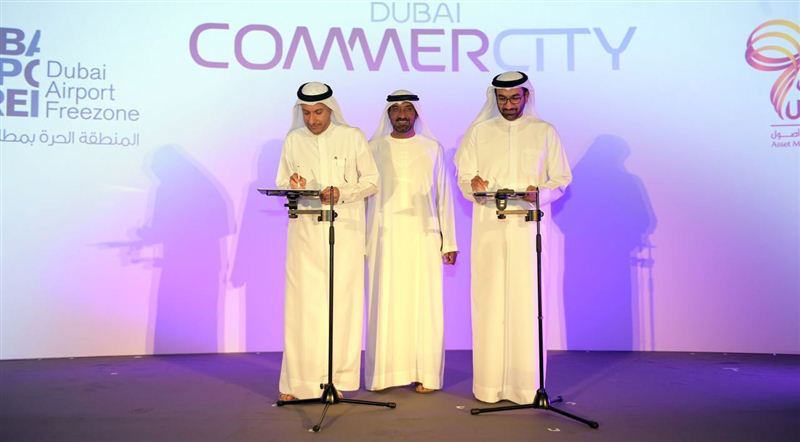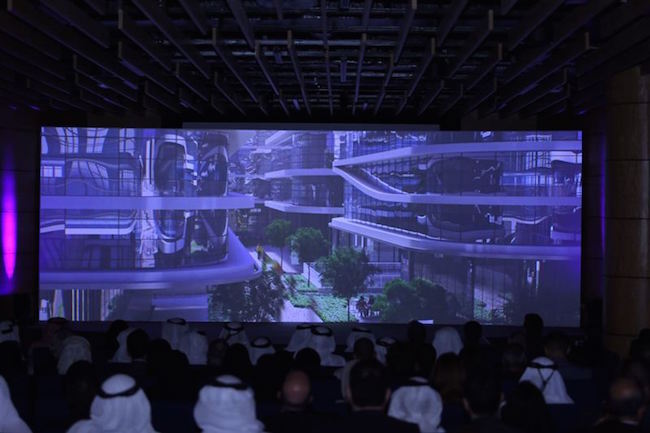Dubai launches Dhs2.7bn e-commerce freezone
The project is being developed in the Umm Ramool area by DAFZA and wasl

A new Dhs2.7bn freezone dedicated to e-commerce has been launched in Dubai, in a bid to attract more foreign investments and further diversify the emirate’s economy.
Called Dubai CommerCity, the project is being developed as a joint venture between Dubai Airport Freezone Authority (DAFZA) and wasl Asset Management Group, in the Umm Ramool area.
Located near the Dubai International Airport, the zone is well-connected to major local and national highways.
It will offer cargo and logistics services and an integrated infrastructure with easy access to land and seaports, enabling distribution and delivery of services while also minimising supply chain costs, a statement said.

Spanning a total area of 427,000 sqm, it will feature office spaces and logistics units covering 207,000 sqm; a total leasable area of 176,000 sqm; and infrastructure and parking areas over 220,000 sqm, with 4,000 parking slots for its customers.
The free zone will be divided into three clusters – business, logistics and social.
The business cluster will include 13 office buildings with a total leasable area of 108,000 sqm and a total built-up area of 136,000 sqm.
With a total built-up area of 71,000 sqm and a leasable area of 68,000 sqm, the logistics cluster will consist of 84 logistic units. The main feature of the cluster will be its rooftop PVC solar panels for generating clean energy.
The social cluster will feature art galleries, luxury restaurants and cafés, and other facilities.
From a sustainability perspective, the zone aims to reduce electricity consumption by using solar energy, lower water wastage by 40 per cent through the treatment of polluted water and the collection and reuse of stormwater and use environmentally friendly building materials and recycled resources.
The project will be implemented in two phases, where 50 per cent will be completed at each stage.
It will have all the facilities to support the e-commerce sector including technology-enabled warehouses, logistics, electronic payments, IT solutions, customer services, and other related businesses.
Over the next five years, the e-commerce sector is projected to account for 10 per cent of Dubai’s retail sales, which are in turn expected to reach Dhs200bn by the end of 2017.
Also read: The future of e-commerce in the UAE
The e-commerce market alone is expected to reach $20bn in the GCC countries by 2020.
DAFZA chairman Sheikh Ahmed Bin Saeed Al Maktoum, who launched the project, said the zone would help attract more direct foreign investments to the emirate.
The free zone will allow for full foreign ownership rights and is also hoped to support start-ups and young entrepreneurs in the e-commerce field.
Sheikh Ahmed highlighted that free zones have “flexible and adaptable legislations and business systems” which “empowers economic clusters and accelerates their growth”.
He added that free zones also play strategic roles locally and regionally in enhancing global trade routes and supply chains.
Mohammed Al Zarooni, director general of DAFZA, said: “Through Dubai CommerCity, we aim to play an organisational, operational and knowledge-based role that will contribute to the building of a new world-class free zone and the creation of a unified platform for government, administrative, customs and logistics services that meet the needs of the e-commerce sector.”
Dubai’s and the Middle East’s e-commerce industry has seen a major boom in recent months. The acquisition of Souq.com by Amazon and the very recent launch of the $1bn noon.com site by Dubai businessman Mohamed Alabbar in the UAE are all set to have a major impact on the region’s online retail market, say experts.
